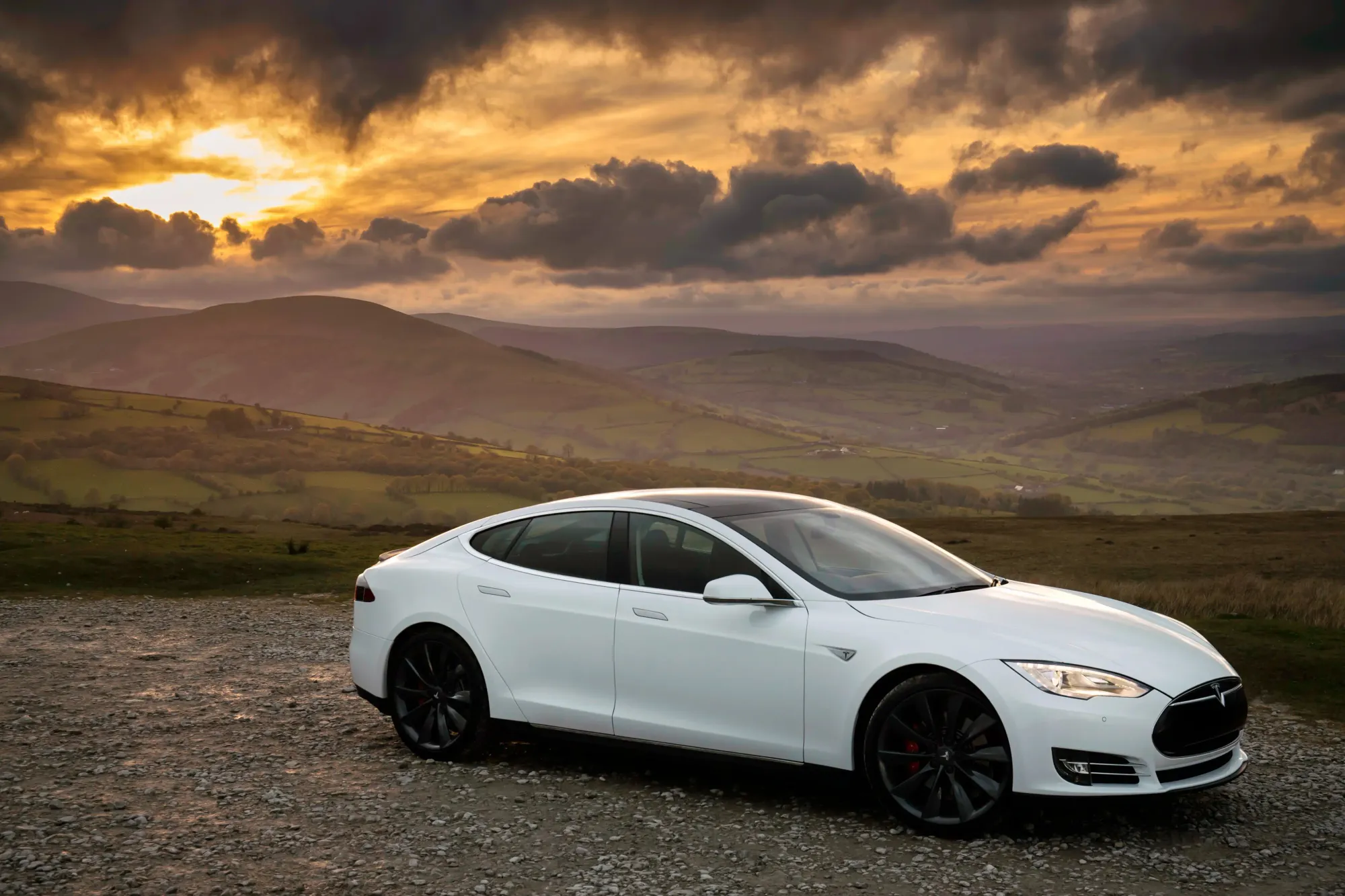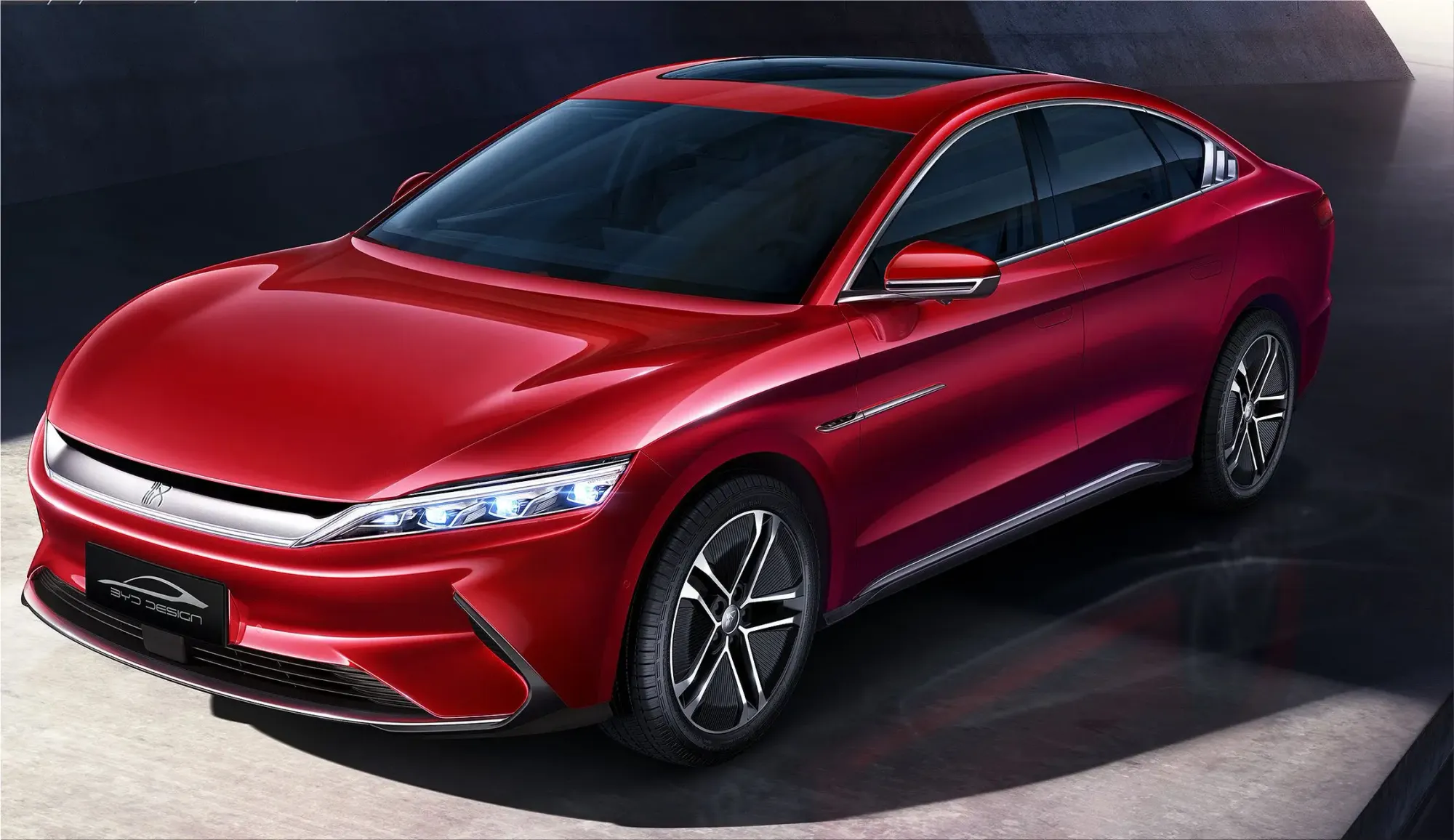The Tesla Model S and BYD Han EV represent two compelling options for anyone considering an electric vehicle. Both models offer advanced technology, impressive performance, and a glimpse into the future of sustainable driving. In this comparison, we'll explore key aspects such as pricing, design, performance, and technology to help you decide which EV might be the perfect fit for your lifestyle.
Pricing and Trim Levels: Tesla Model S vs BYD Han EV
Pricing and trim levels are crucial factors when choosing an EV as they directly impact affordability and available features.
-
💰 Base Model Pricing: The Tesla Model S starts at approximately $89,990 and boasts features like dual-motor all-wheel drive and a range of up to 405 miles. The BYD Han EV, starting at around $45,000, offers a more affordable entry price with a decent range and luxury touches.
-
🚀 Performance Trims: Tesla's Model S Plaid trim, priced at about $108,490, delivers blistering acceleration with a 0-60 mph time of under 2 seconds. The BYD Han EV Performance model offers a strong yet less aggressive performance boost for a lower price.
Design and Exterior Features: Tesla Model S vs BYD Han EV
Design and exterior features significantly influence an EV's appeal, affecting both aesthetics and functionality.
-
🎨 Aerodynamic Design: Tesla's sleek profile enhances its aerodynamic efficiency, contributing to its long range. The BYD Han combines elegance with aerodynamics, optimizing energy use.
-
💡 Lighting and Aesthetics: Tesla features minimalist LED headlights and a panoramic glass roof, adding to its futuristic look. BYD Han's distinctive LED lighting and chrome accents present an upscale feel.
-
🚪 Unique Features: Tesla’s flush door handles and frameless windows offer a clean look. The BYD Han’s feature a solar roof and soft-close doors for added luxury.
-
📏 Exterior Dimensions: The Model S is slightly longer, offering more interior space, while the BYD Han's compact design might be easier to maneuver in urban settings.
Interior and Cabin Space: Tesla Model S vs BYD Han EV
Interior comfort and space are essential for a satisfying driving experience in an EV.
-
🪑 Seating and Comfort: Tesla offers ergonomic seating for up to five adults with premium materials. BYD Han provides similar luxury seating with a focus on rear passenger comfort.
-
📱 Technology Integration: Tesla leads with its 17-inch infotainment screen and seamless over-the-air updates. The BYD Han features a rotating touchscreen and advanced voice control.
-
🧳 Storage and Utility: The Model S provides generous trunk and frunk space, while the BYD Han offers ample rear storage but lacks a front compartment.
Performance and Acceleration: Tesla Model S vs BYD Han EV
Performance and acceleration are critical for many EV buyers, defining the driving experience.
-
⚡ Acceleration and Speed: The Model S Plaid achieves 0-60 mph in 1.99 seconds with a top speed of 200 mph. The BYD Han EV reaches 0-60 mph in around 3.9 seconds, offering a spirited drive at a lower price.
-
🛞 Handling and Drive Modes: Tesla’s adaptive air suspension and multiple drive modes provide versatile handling. The BYD Han offers a balanced ride with standard and sport modes.
Range and Battery Options: Tesla Model S vs BYD Han EV
Range and battery options are pivotal for ensuring an EV meets daily driving needs.
-
🔋 Battery Options: Tesla offers a 100 kWh battery pack, whereas the BYD Han comes with a 76.9 kWh pack. Both offer competitive range for their categories.
-
🌍 Real-World Range: Tesla Model S provides up to 405 miles, outperforming the BYD Han's 340 miles, although both perform well in various conditions.
Technology and Safety Features: Tesla Model S vs BYD Han EV
Technology and safety features enhance convenience and provide peace of mind for EV owners.
-
🤖 Driver Assistance Features: Tesla’s Autopilot offers advanced highway driving assistance. BYD Han includes a comprehensive suite of driver aids, albeit less sophisticated.
-
🚘 Full Self-Driving (FSD): Tesla's FSD promises potential for autonomous driving, which is still in development. The BYD Han focuses on practical assistance for immediate use.
-
🛡️ Active Safety Features: Both models include collision avoidance and emergency braking, with Tesla’s system being more integrated.
-
⭐ Crash Test Ratings: Tesla has consistently high safety ratings, while BYD Han receives good marks from regional safety boards.
Charging Options and Infrastructure: Tesla Model S vs BYD Han EV
Charging options and infrastructure determine the practicality of daily EV use.
-
⚡ Home Charging: Tesla’s home charging setup is straightforward with wall connectors. BYD Han offers competitive home charging solutions with similar ease of use.
-
🌍 Public Charging Networks: Tesla’s Supercharger network is extensive and reliable, while BYD relies on third-party networks, which are growing globally.
Charging Speed: Tesla Model S vs BYD Han EV
Charging speed is crucial for convenience, especially during long trips.
-
⚡ Home Charging Speed: Both offer competitive home charging speeds, with Tesla slightly leading due to optimized connectors.
-
🌍 Fast Charging Speed: Tesla Superchargers can charge up to 200 miles in 15 minutes. BYD Han's fast chargers are improving but currently offer slower speeds.
-
🛠️ Third-Party Chargers: Both models integrate well with third-party networks, though Tesla’s network is more efficient.
Customization Options: Tesla Model S vs BYD Han EV
Customization options allow EV owners to tailor vehicles to personal tastes.
-
🎨 Exterior Colors: Tesla offers a range of classic and vibrant hues. BYD Han provides a selection of sophisticated shades.
-
🛞 Wheel Designs: Tesla's aerodynamic wheels enhance range, while BYD offers stylish options for an elegant look.
-
🪑 Interior Trims: Tesla’s minimalist interiors contrast with BYD Han's more traditional luxury touches.
Conclusion: Tesla Model S vs BYD Han EV
Here's a quick summary of the key differences and considerations for each model:
-
✅ Strengths of Each Model: Tesla Model S excels in range, technology, and performance. BYD Han stands out for its affordability and luxury features.
-
❌ Considerations: Tesla’s higher price and reliance on proprietary tech may deter some buyers. BYD Han’s limited network and slightly lower performance might be a drawback for others.




